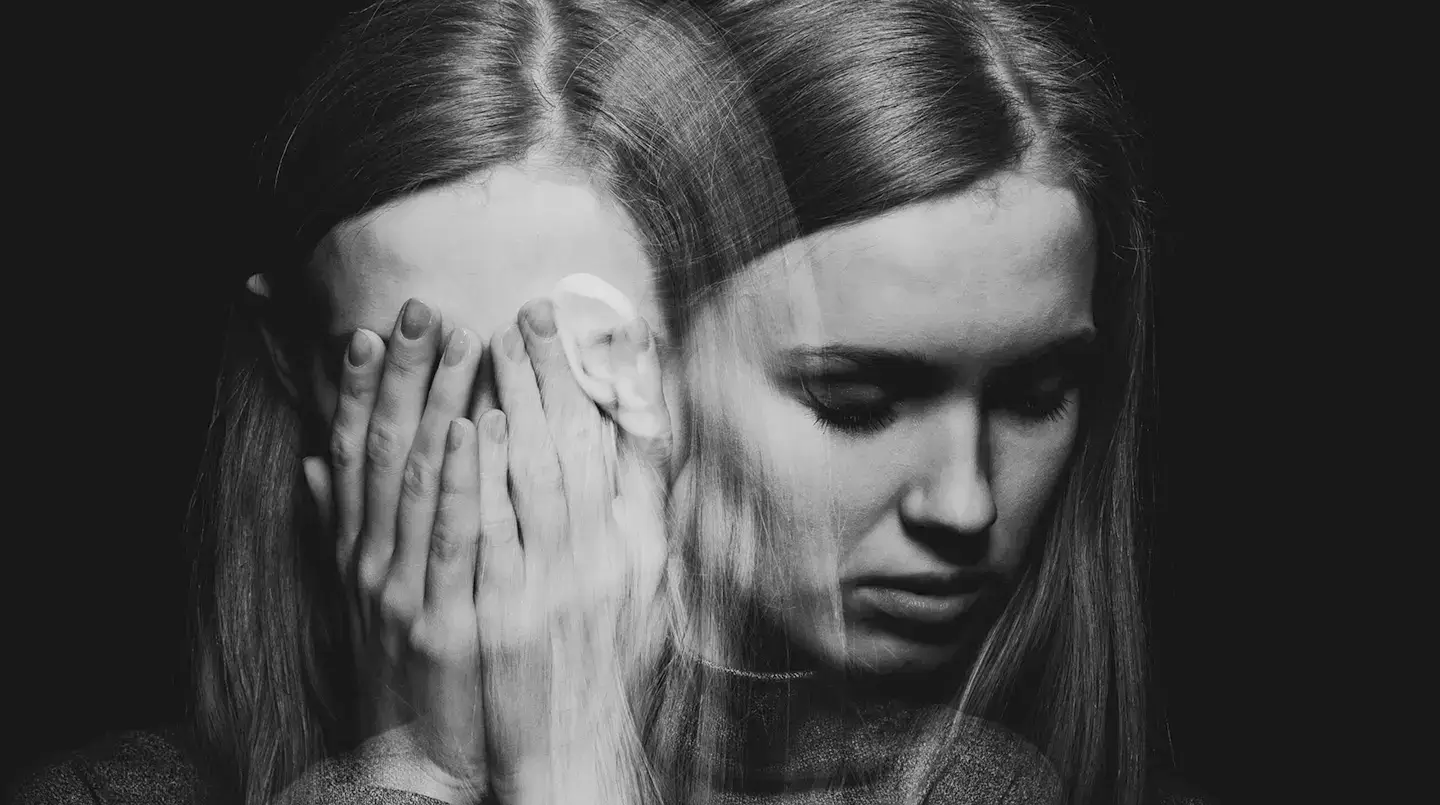
Bipolar Treatment Centers In Los Angeles
Bipolar disorder can create havoc in a person’s life, often leaving them unsure of where to turn to get the help they need. Our bipolar treatment center in Los Angeles provides specialized care. Our team helps people learn to manage their symptoms and improve their quality of life. We treat any co-occurring addiction to drugs or alcohol that often accompanies mental health conditions.

What is Bipolar Disorder?
Bipolar disorder constitutes one of the most widely misunderstood mental health conditions. Classified as a mood disorder, bipolar disorder also proves to be one of the most complex types of this disorder. Sometimes referred to as manic-depressive disorder, it’s characterized by severe and dramatic shifts in mood that affect a person’s ability to carry out daily responsibilities and routine tasks.
Bipolar disorder isn’t as rare of a disorder as one might think. In fact, it affects more than 5 million adult Americans. To add, men and women are impacted equally, and the average age at which individuals begin to show symptoms is 25. This explains why many young adults find themselves needing treatment after years without experiencing any major symptoms.
Although bipolar disorder cannot be cured, with the right treatment program, it can be managed so it doesn’t cast a pallor over a person’s entire life. Our bipolar treatment center Los Angeles program teaches individuals how to anticipate and manage certain symptoms so they can fulfill their potential and enjoy productive lives.
What Causes Bipolar Disorder?
While researchers have yet to fully comprehend the exact cause of bipolar disorder, they have identified various potential risk factors that can increase the likelihood of developing it. Nevertheless, our bipolar treatment center in Los Angeles can help identify potential triggers for developing this illness.
Bipolar disorder risk factors include:
Family History
Research has found that bipolar disorder is something that is often passed down from generation to generation. The National Institute of Mental Health states that children with a parent or sibling with the disorder have a higher chance of developing it than those without affected family members. However, it’s important to note that just because there is a family history of bipolar disorder, it does not mean a person is guaranteed to develop the illness.
Brain Composition
Chemical imbalances and hormonal problems have been linked to mood disorders, including bipolar disorder. Patients with bipolar disorder often show physical changes in their brains, although the exact reasoning still remains unclear.
Environmental Factors
Individuals who have experienced physical or emotional abuse, prolonged periods of high mental stress, a significant loss, or some other traumatic event are more susceptible to developing bipolar than those who have not.
Gender
As mentioned, bipolar disorder affects both genders equally. However, women are 3 times more likely to experience rapid cycling of mood episodes. They are also more likely to experience depressive and mixed episodes of the disorder compared to men.
Bipolar Disorder Symptoms
Many bipolar disorder symptoms can occur as a person cycles through the illness. It’s important to learn to recognize the signs and symptoms, which can include:
Risky and Impulsive Behavior
Symptoms that take place during a manic episode can include acting impulsively or undertaking risky behavior. The person may take risks with physical or sexual activity without regard for possible negative outcomes or they may spend money recklessly. They focus on satisfying a need for thrills and feel a sense of being bulletproof that can end up causing damage.
Hallucinations and Psychosis
Auditory hallucinations commonly occur as part of bipolar disorder symptoms. The person may hear voices that don’t exist and refuse to believe they aren’t actually happening. Hallucinations may occur as a symptom on their own or as part of psychosis.
Grandiose Delusions
The person may believe they possess superpowers, are famous, or live a life that doesn’t actually exist. They believe they have great self-importance and do not understand when any of these thoughts are disputed by others. This symptom typically happens during manic and hypomanic phases.
Hyperactivity
Common during manic and hypomanic episodes, different types of hyperactive behavior can point to the presence of bipolar disorder. This behavior can include insomnia, unusual amounts of energy, and a need to constantly do things and be on the go. The person often exhibits unusual levels of talkativeness, has racing thoughts, and is easily distracted. Having a conversation or engaging in a singular activity with them often proves difficult or impossible to do.
Signs of Depression
During depressive phases, many symptoms are similar to those experienced by those with depression. The person may express sadness, feelings of hopelessness, and be unable to feel joy. These feelings may contribute to them losing interest in hobbies and activities they normally enjoy. They may withdraw from those around them and isolate themselves. Some people experience a decrease in appetite and energy levels and may feel suicidal during the depressive phase.
Types of Bipolar Disorder
Bipolar disorder can occur in 1 of 4 major categories. Bipolar treatment centers Los Angeles understands the different types and offers treatment for each of them. The types of bipolar disorder include:
Bipolar I Disorder
An individual will cycle through episodes of full mania, which typically last 7 days or more, alternating with episodes of major depression. The manic episode may precede or follow a major depressive episode.
Bipolar II Disorder
In this instance, the person will experience depressive episodes along with less severe symptoms of mania, called hypomania, which last at least 4 days and are present most of the day, nearly every day.
Cyclothymic Disorder
This form is characterized by episodes of hypomania and episodes of mild depression over a period of at least 2 years, interspersed with symptom-free periods. However, none of the symptoms are severe enough to meet the diagnostic criteria for a hypomanic episode or a major depressive episode.
Substance-Induced Mood Disorder
This condition occurs when the mood disturbance symptoms begin when an individual is either high on a drug or during withdrawal.
Medications For Bipolar Disorder
Several medications that treat bipolar disorder exist and offer relief for symptoms of this challenging mental illness. Med options include:
Mood Stabilizers: Most individuals with bipolar disorder typically need mood-stabilizing medications to control manic or hypomanic episodes. Some of the most common types include lithium, lamotrigine, and valproate.
Antipsychotics: If a patient suffers from hallucinations, delusions, paranoia, or severe episodes of mania, antipsychotic medications can help ease these symptoms.
Antidepressants: Doctors often prescribe antidepressants to treat symptoms of depression in bipolar disorder. Physicians typically prescribe them only in combination with mood stabilizers, as they can increase the risk of mania or hypomania on their own.
Bipolar Disorder and Substance Abuse
Although it’s not fully understood why substance use disorders often co-occur alongside bipolar disorder, those with this mental illness may be more vulnerable to developing an addiction to drugs or alcohol. Conversely, chronic substance users may be at greater risk of mood disorders than non-substance users.
Studies have found that alcohol is the substance most often abused by patients with bipolar disorder, followed by cannabis, amphetamines, and cocaine. People with bipolar disorder who commonly abuse alcohol are less likely to adhere to treatment. Consequently, they are more likely to be hospitalized or attempt suicide than people with bipolar disorder only.
Effective treatment for bipolar disorder and substance use disorders at the same time allows a person to become sober and manage their mental health concurrently. This saves them time and is more effective than addressing one issue at a time. Treatment for bipolar disorder and substance abuse can include the use of psychotherapy, medications, adopting a healthy lifestyle, and workable coping strategies.




